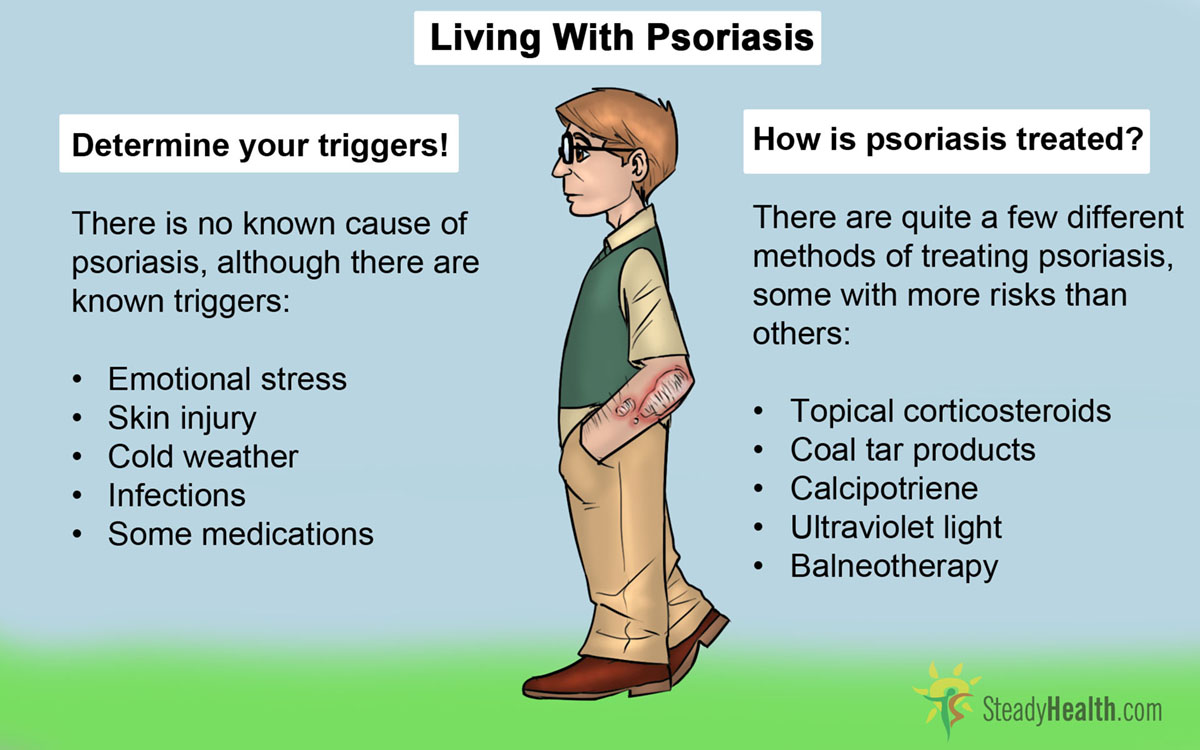Table of Contents
What is psoriasis?
From the Greek word for "an itching," psoriasis is a chronic skin condition that is characterized by red, scaly patches of skin with clearly defined borders. It affects approximately 1% to 2% of the general population, although about one third of sufferers have a family history of the disease.
Most of those diagnosed, however, find the plaques in a few common spots: at the hairline and on the ears, at the lower back and down onto the buttocks, around the bellybutton, and at the elbows and knees.
What is it caused by?
There is no known cause of psoriasis, although there are known triggers such as infections, cold weather, stress, and some drugs. The symptoms typically develop at as early of ten years of age and as late as 40.
The plaques come and go, but may sometimes continue for months or even years at a time. For a small minority of patients, the condition is accompanied by other inflammatory diseases like inflammatory arthritis and inflammatory bowel disease.
How is it treated?
Topical corticosteroids: These drugs are used to treat a wide variety of inflammatory conditions. Long-term use can cause thinning and bruising of the skin and may even lead to altered sleep cycles and osteoporosis.
Coal tar products: These are one of the oldest treatments for psoriasis. As new medications have been created, coal tar ointments have decreased in popularity. Although they are very effective, they are very smelly and stain fabrics easily. Coal tar products do soften and loosen psoriasis plaques, though, and are widely available as over-the-counter preparations. They may cause sensitivity to sunlight.
Calcipotriene: Calcipotriene is a form of topical vitamin D that is available only as a prescription. It works by changing the way skin cells are produced at the site of psoriasis plaques. It may irritate surrounding skin and can also cause sensitivity to sunlight.
Read More: The Ten Most Common Psoriasis Triggers
Ultraviolet light: Also known as phototherapy, this is essentially a tanning bed and can be used at home to effectively treat psoriasis. UVB rays work the best, but like any UV light, they increase the risk of developing skin cancer.
Balneotherapy: There have been some interesting studies on the positive effects of saltwater and/or mineral water immersion therapy for psoriasis sufferers, especially those involving immersion in the Dead Sea or in Dead Sea salt solutions. It has been proposed that trace elements present in the water are absorbed through the skin and contribute to a systemic effect on the body, resulting in a decrease of psoriasis plaques. The hot, mineral-rich waters also work locally to soften and exfoliate the skin.
- Psoriasis. (2001). In Taber's Cyclopedic Medical Dictionary (pp.1707-1708, Edition 19). Philadelphia, PA: F. A. Davis Company.
- Mindmap by steadyhealth.com
- Photo courtesy of Kara Harms by Flickr : www.flickr.com/photos/kara_allyson/4342249534/



Your thoughts on this